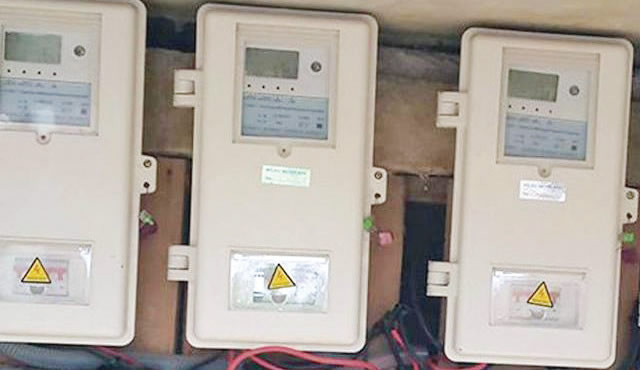Confab rejects pay increase for Nigerian workers
Category: Nigerian National News
The Confab also set timeline for the president to submit budget to the National Assembly.
Delegates to the ongoing National Conference on Thursday rejected a proposal calling for the increment of the National Minimum Wage to about N40,000.
The current minimum wage is N18,000 though some states find it difficult to pay their workers.
The Conference Committee on Public Service chaired by a former Head
of Service of the Federation, Ebere Okeke, had recommended that since
the minimum wage was fixed at a level just above the poverty line and it
was the duty of the Federal Government to ensure that the remuneration
of every Nigerian was above poverty line, it was necessary to have it
retained in the Exclusive Legislative List.The Committee also called for the introduction of a new sub-section that would compel the review of public sector pay for every five years to take cognisance of trends in the cost of living.
However during the debate on the Committee’s report on Wednesday, some delegates called for pay rise for Nigerian workers.
A delegate from Rivers State, Sergeant Awuse proposed an amendment calling for the raising of the minimum wage to nothing less than N40,000.
According to him, the issue of the level of the minimum wage was germane to the crusade against corruption.
While asking the leadership of the Conference to look into the issue, the delegate surprised his colleagues when he turned to them and asked them if any of them could live with N18,000.
A South East delegate, Clement Mgbada, said N18,000 minimum wage was not enough for Nigerian workers and said he wondered why some states could not pay it. He lamented that even the states that are able to pay the wage don’t do so promptly.
He said most Nigerians talked about corruption without considering the causes of the menace.
Mr. Mgbada noted in particular that public servants in Nigeria were not properly motivated hence corruption thrives.
He suggested that the issue of minimum wage should be left in the Exclusive List of the Constitution.
However, Eddy Eragbe, a professor from Edo State said it was a misconception that corruption thrives more among low income earners as it was more prevalent among the high class.
Peter Ozo-Okon, Chief Economist of the Nigeria Labour Congress, NLC, said the issue of minimum wage should not be a state issue, but federal one because it would undermine the cohesion of national economy.
According to him, the principle that governs this cohesion has nothing to do with federalism.
When the consideration of the recommendations of the Committee report and amendments proposed resumed on Thursday, the Deputy Chairman of the Conference, Bolaji Akinyemi, who moderated the session put the issue to vote, the delegates voted against the amendment.
However, a delegate from Edo State and former senator, Yisa Braimah, appealed to the leadership of the Conference to bring back the issue to enable the delegates take another look at it.
He was, however, ruled out of order by Mr. Akinyemi who explained that the Conference rules do not allow it to return to issues they had considered and voted on.
The Conference also voted to have timelines for the submission and operation of the federal budgets.
It resolved that the president should submit the coming year’s budget by September 1 of the preceding year while the National Assembly consider and work on the budget between that time and November 30.
The Conference also resolved that the President must sign the budget into law before January 2 so that it would come into operation on that date or else it would amount to shutting down the country, economically.
Suggestions by some delegates to stipulate punishments for the president and the National Assembly if they fail to meet the deadline were eventually defeated.
Meanwhile, the Conference adopted a motion canvassing the creation of the Federal Character and Equal Opportunities Commission.
This was sequel to a motion sponsored by a Muslim leader, Nurudeen Lemu and 32 others.
Some of the co-sponsors are Olu Falae, Edwin Clark, Femi Falana, Ray Ekpu, Auwalu Yadudu, Ruqayyatu Rufai, Aisha Ismail and Mohammed Kumalia.
In the motion, the delegates said the current Federal Character Commission, FCC, should be upgraded to address issues of equity and equal opportunities in other to take care of other key sectors and groups in the society.
They said the FCC should be renamed Equal Opportunities Commission to now address among its function the issues of affirmative action for the people with disabilities and other vulnerable groups including ethnic and religious minorities, women, youth and other sectors of the society often excluded.
However, Alphonsus Nwosu brought a counter motion saying rather than having a brand new commission, the FCC should be strengthened to include the functions of the proposed commission.
Following exhaustive debate on the issue, the delegates resolved through voting that the FCC should incorporate into its functions those of the proposed body and be called Federal Character and Equal Opportunities Commission.
Related Posts:
- Pro-Biafra group attempts to seize Enugu Radio, kills police sergeant
- 80% of Nigerian youths are unemployed – CBN
- Massive Bomb Explosion Rocks Gombe State Governor's Residence
- Three killed as Biafra secessionists attack Nigerian broadcast station
- Reps directs NCAA to return N255m bulletproof cars purchased for former Aviation Minister Ms Stella Oduah
- El-Rufai Joins Kaduna Governorship Election Race
- My Father Is Greater Than Obasanjo – MKO Abiola’s Daughter
- We killed ex-Anambra dep gov ’cos his wife proved difficult — SUSPECTS
- APC Finally Dumps Gen Buhari As Their 2015 Candidate
- BREAKING NEWS: Jonathan appoints Shekarau, Adeyeye, two others as ministers





















No comments